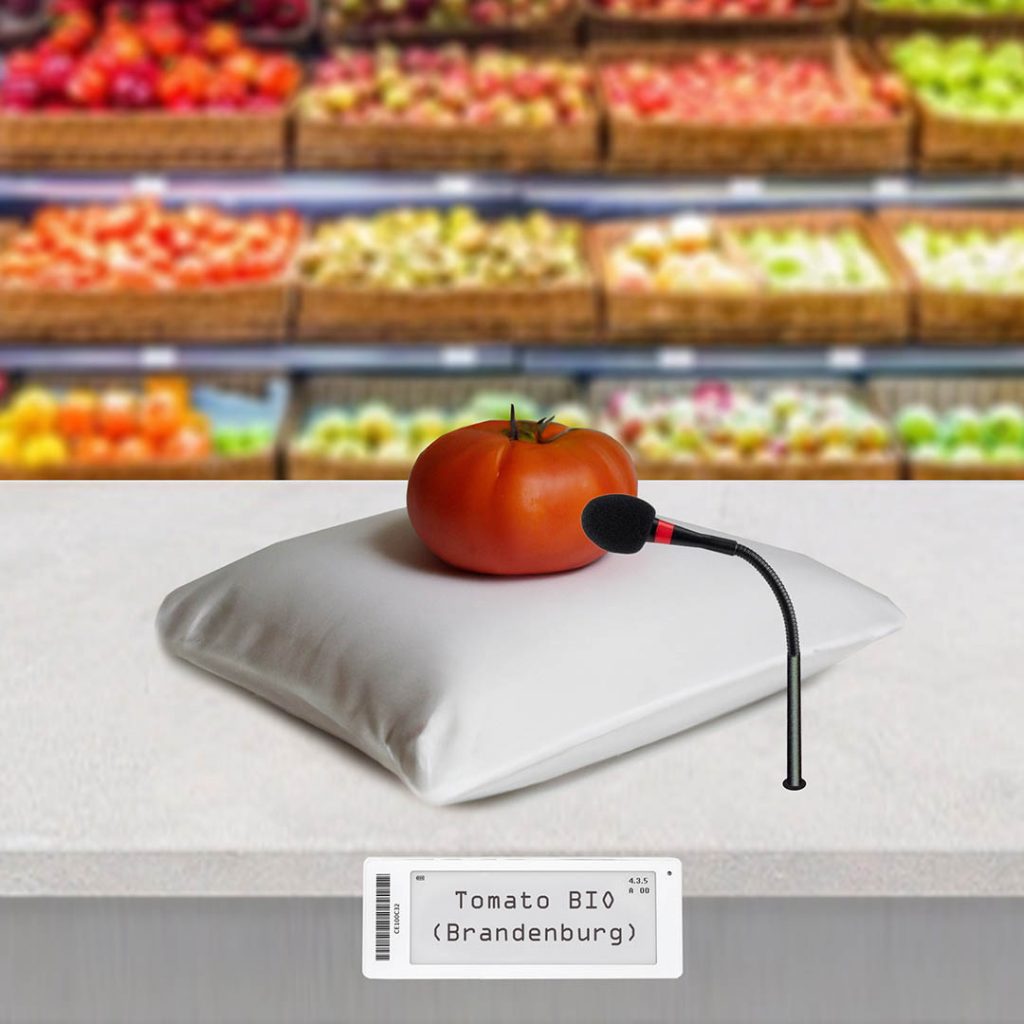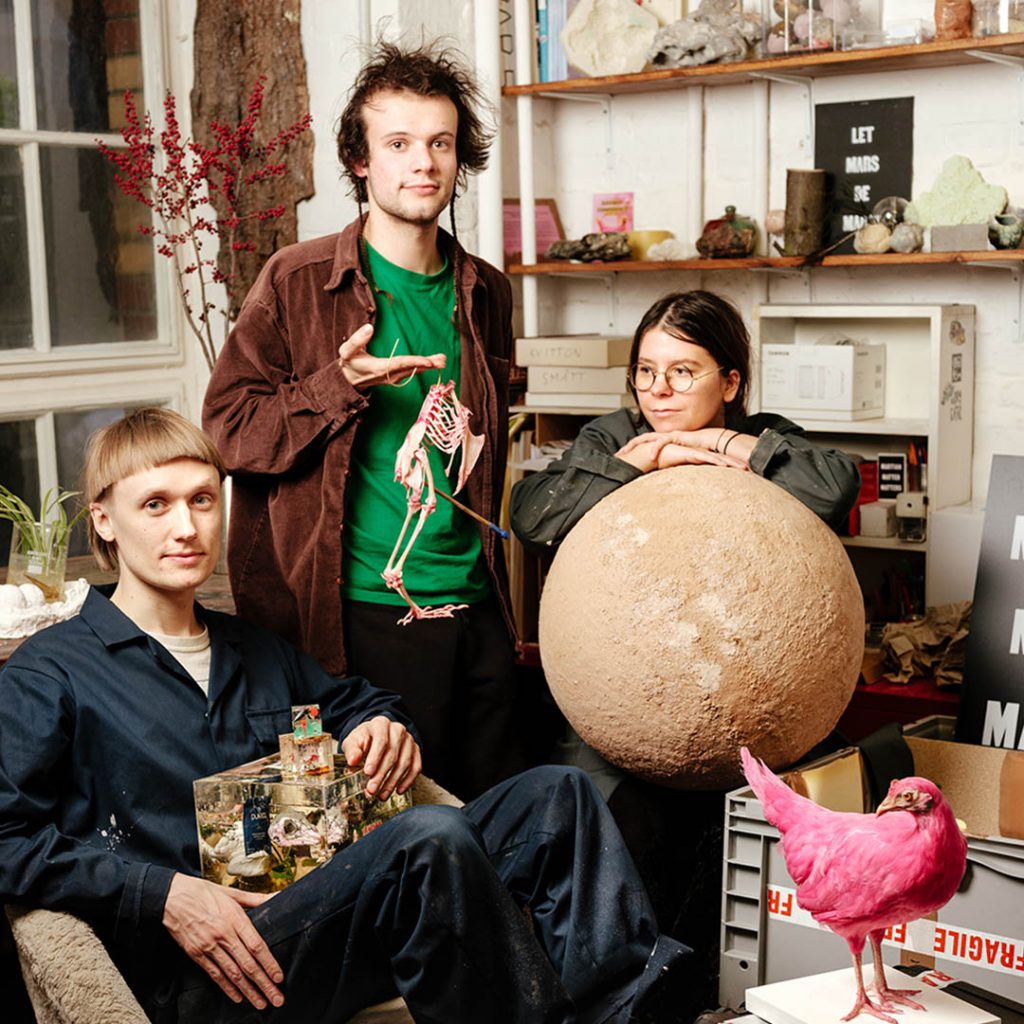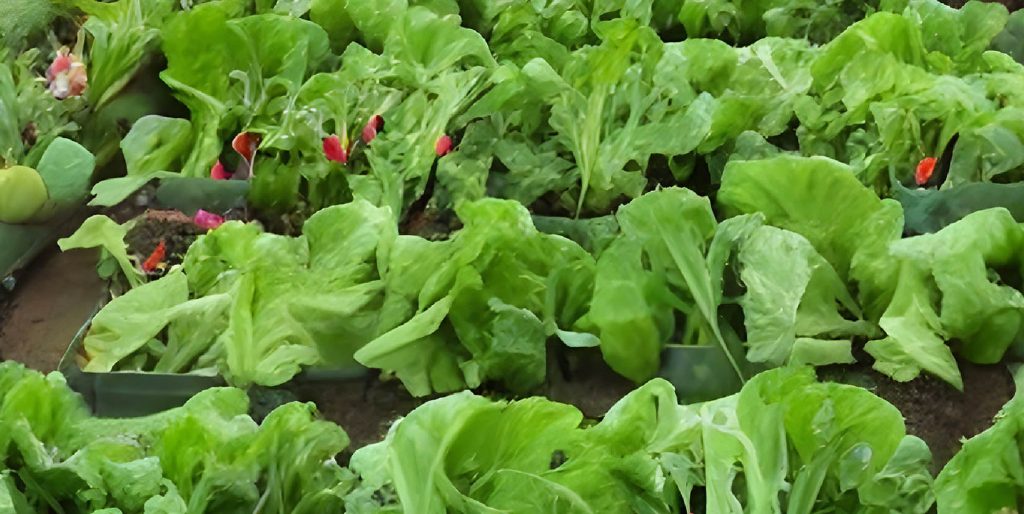HUNGRY ECOCITIES > Humanizing Technology Experiments

The Council of Foods
This project aims to give food a voice by imbuing it with personality and agency through an experimental assembly of food AI. The exploration of AI in food ethics is at the heart of this fascinating endeavor.
DIRECTION OF EXPERIMENTATION
Local Conditions
TECH TAGS
#non-human agency #prompt engineering #sociality of AI #large language models #text-to-speech #speech-to-text #explainable AI #open access
TEAM
Nonhuman Nonsense + Studio Other Spaces + KU Leuven Institutes + In4Art
PROJECT SUMMARY
What would a locally and biologically grown tomato think about pesticide use? What would be the response of a mass-produced banana? What would you add to the discussion? Can AI be trained to identify itself as a potato or a carton of milk? Can we tune AI with the knowledge of local farmers and food sovereignty experts?
Introducing- The Council of Foods – your supermarket of local ethics. A meeting place between humans and nonhumans(food), mediated by AI.
The project attempts to reimagine the supermarket as a place of sharing knowledge, active listening and discussion. Not a place of consumption but of conversation, a place of machine learning and human learning. Inspired by “The Parliament of Things”, the project proposes an experimental, interactive Council of Foods. A place where you can sit down and listen to chattering foods and even take part in the discussion. To hear, directly, from the food what their eco-social influence and guiding ethical principles are and discuss together what actions need to be taken to form a locally and globally sustainable food system.
This project aims to give food a voice by imbuing it with personality and agency through an experimental assembly of food AI. The exploration of AI in food ethics is at the heart of this fascinating endeavor.
This project will work towards a technological prototype of The Council of Foods in Berlin. Food of diverse backgrounds will be chosen as representatives for the prototype, it would include foods with backgrounds such as: the mass produced, the locally grown, the genetically modified, the processed, the fair trade, the affordable and the biological. All the food items will be assigned an AI language model, each ‘tuned’ on different knowledges and ethical guidelines. Therefore, all foods will have divergent ethical positions and agendas, voicing a variety of perspectives in The Council of Foods. The idea is to create human-like personas for non-human entities so that those entities can interact with humans for educational purposes. A system will enable the food-Ais to interact with each other and human visitors using text-to-speech and speech-to-text technology to facilitate live conversations.
The Council of Foods is envisioned to become a dynamic setting, where human learning goes hand in hand with machine learning. The food-AIs are learning from experts, the visitors learning from the food and the food learning from the discussions. Leading to an ever changing, always learning environment. The food-AIs would become specific to Berlin-Brandenburg food cultures, yet similar prototypes could be facilitated in other cities, leading to diverse assemblages of foods and knowledges.

Nonhuman Nonsense Portrait @Photo Samuel Zeller
ARTIST
Nonhuman Nonsense
Nonhuman Nonsense is a Berlin based, research-driven design and art studio creating fabulations and experiments somewhere between utopia and dystopia. They seek to transmute our relationship to the nonhuman, by embracing the contradictory and the paradoxical – telling stories that open the public imaginary to realities that currently seem impossible.
Consisting of Leo Fidjeland, Linnea Våglund and Filips Staņislavskis, they work in the embryonic stages of system transformation, in the realm of social dreaming and world-making processes. Aiming to redirect focus to the underlying ethical and political issues, to challenge the power structures that enable and aggravate the current destruction of the (non)human world – allowing other entities to exist.
Their work has been presented at the United Nations, in negotiations on the Convention on Biological Diversity. It has been shown at the MIT Museum, Triennale Milano, MU Artspace, Seoul Art Space Geumcheon, ArkDes, Gogbot Festival and Beijing Design Week, amongst other venues. It has been featured in media such as VICE Motherboard, Vogue Ukraine, Gizmodo Earther, Next Nature Network, Makery, Discover Magazine, Dezeen. They have been invited speakers, lecturers at Fabrica Research Centre, Future Architecture Platform, Gluon, UdK Berlin, Humboldt University, International Space University, amongst others.
For a more in-depth elaboration of their approach, see this recent interview for Next Nature Network.
